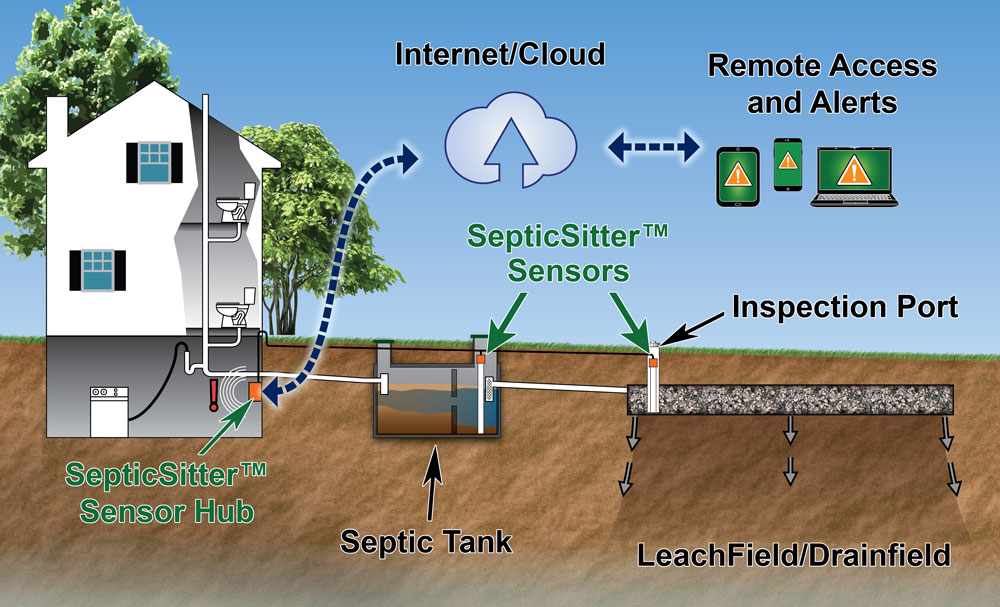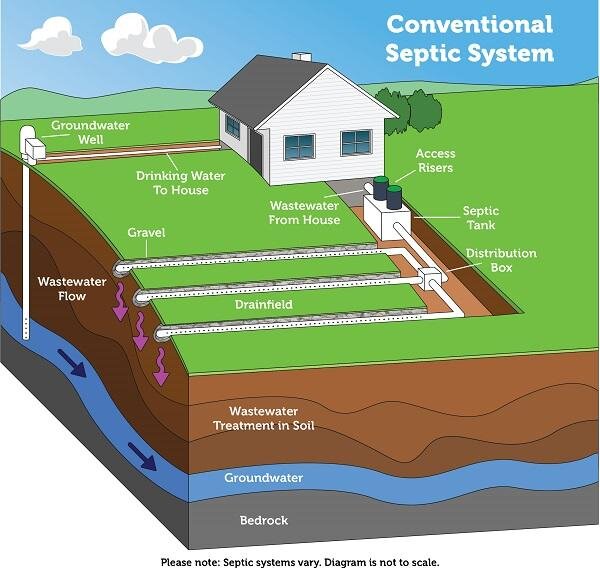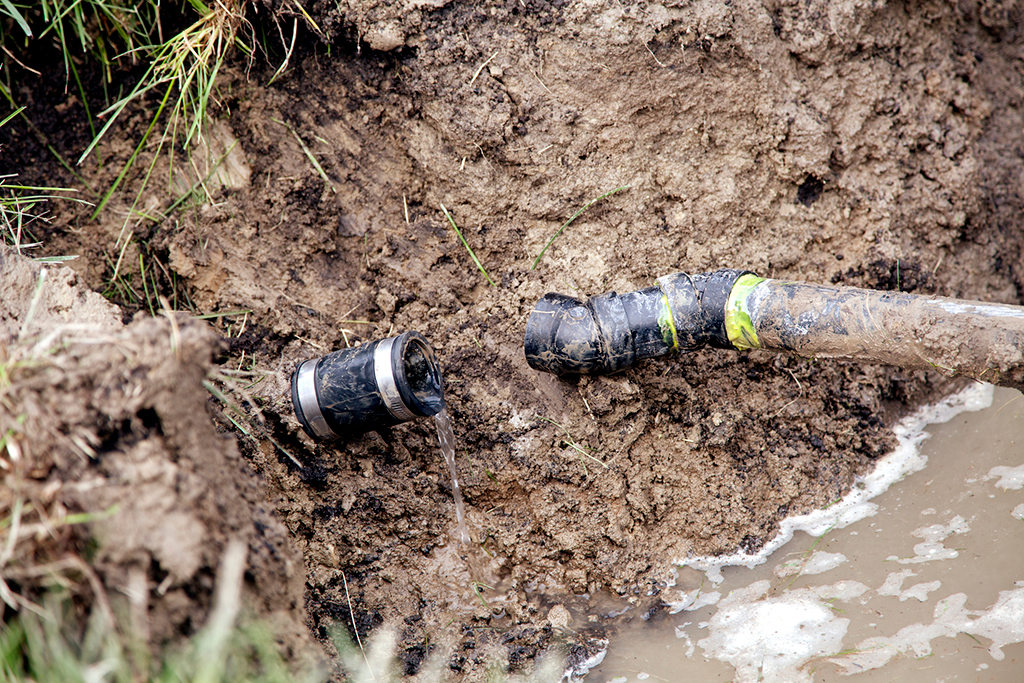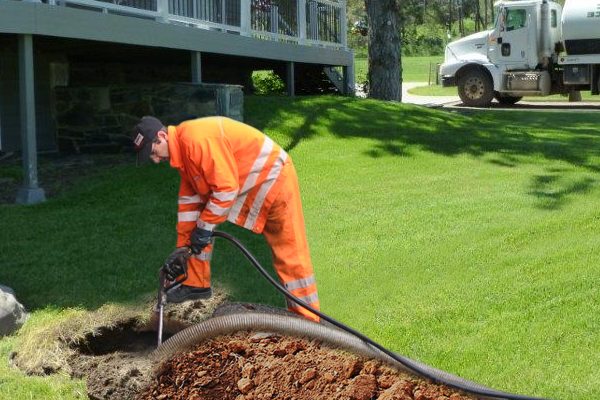Have you ever wondered if your septic tank has a breaking point? In this article, we will explore the fascinating topic of whether or not it is possible to overwork a septic tank. We will take a closer look at the functionalities of these underground waste management systems and shed light on the factors that can potentially push them to their limits. So, if you’re curious to know if your septic tank can handle all the waste it receives, keep reading to find out more!

Understanding Septic Tank System
What is a septic tank?
A septic tank is an underground wastewater treatment system commonly used in rural and suburban areas where access to a centralized sewer system is limited. It is designed to collect, store, and treat wastewater from the household. The septic tank works by allowing solid waste to settle at the bottom, while the liquid waste is released into a drain field for further treatment.
How does a septic tank system work?
A septic tank system works by separating solids, liquids, and scum. When the wastewater from your home enters the septic tank, it undergoes a natural process of decomposition. Solid waste settles at the bottom of the tank, forming a layer of sludge. The liquid waste, known as effluent, flows into the drain field where it is further treated by soil and microorganisms.
Components of a septic tank system
A typical septic tank system consists of several components. The primary component is the septic tank itself, which is a large, watertight container usually made of concrete, fiberglass, or plastic. It is buried underground and receives all the wastewater from your home. The septic tank also has an inlet pipe to receive the wastewater and an outlet pipe to release the effluent into the drain field.
The drain field, also known as the leach field or absorption field, is the area where the effluent from the septic tank is dispersed and treated. It consists of a series of perforated pipes buried in gravel-filled trenches. The effluent is slowly released into the soil, where it undergoes further filtration and treatment.
Other components of a septic tank system may include a distribution box, which evenly distributes the effluent to different parts of the drain field, and a septic tank riser, which provides easy access to the septic tank for maintenance and inspection purposes.
Factors Affecting Septic Tank Performance
Household size and water usage
The size of your household and the amount of water you use have a significant impact on the performance of your septic tank system. Larger households with higher water usage produce more wastewater, which can overload the septic tank and reduce its efficiency. It is important to be mindful of your water consumption and make efforts to conserve water whenever possible.
Maintenance and pumping schedules
Regular maintenance and pumping are essential for the optimal functioning of a septic tank system. Over time, the solid waste accumulates in the tank, and if not pumped out regularly, it can lead to clogs, backups, and even system failure. It is recommended to have your septic tank pumped every three to five years, depending on the size of your tank and the number of occupants in your household.
Types and amounts of waste
The types and amounts of waste that enter your septic tank can also affect its performance. Biodegradable waste, such as human waste and organic materials, can easily break down naturally in the tank. However, non-biodegradable waste, including items like sanitary products, diapers, and paper towels, can accumulate and clog the system. It is crucial to educate household members and visitors about proper waste disposal to avoid unnecessary strain on the septic tank.
Chemical usage
Certain chemicals, including harsh cleaning agents, antibacterial products, and excessive use of bleach, can disrupt the natural balance of the septic tank system. These chemicals can kill the beneficial bacteria responsible for breaking down waste and inhibiting the treatment process. It is advisable to use septic-safe products and limit the use of chemicals that can harm the septic tank and its microbial ecosystem.
Proper disposal of solid waste
Solid waste disposal is a crucial factor in maintaining a healthy septic tank system. Flushing non-flushable items such as wet wipes, dental floss, and cigarette butts can cause blockages and damage the system. It is important to implement a solid waste management system that encourages proper disposal of non-flushable items in waste bins rather than flushing them down the toilet.

Signs of a Struggling Septic Tank
Slow draining fixtures
One of the signs of a struggling septic tank is slow draining fixtures. If you notice that your sinks, toilets, or showers are draining slower than usual, it could indicate a problem with your septic tank. This can be caused by a blockage in the pipes or an overloaded septic tank that is unable to handle the wastewater efficiently.
Bad odor
Another sign of a struggling septic tank is a foul odor emanating from your drains or yard. If you detect a strong sewage smell around your home, it is a clear indication that something is not right with your septic tank system. The odor can be caused by a variety of issues, such as a full septic tank, a damaged septic tank, or a leak in the drain field.
Gurgling sounds
Gurgling sounds coming from your drains or toilets can be indicative of a septic tank problem. If you hear unusual noises when water is draining, it may be a sign of a blockage or a backup in the septic system. Gurgling sounds occur when air is trapped in the pipes, and the flow of wastewater is restricted.
Overflowing or pooling water
Overflowing or pooling water in your yard, especially around the drain field area, is a clear sign of septic tank trouble. It suggests that the septic tank is unable to handle the volume of wastewater it receives, causing the liquid waste to rise to the surface. This can be a serious issue that requires immediate attention to prevent further damage and contamination.
Lush vegetation or greener grass near the drain field
While having a lush and green lawn is usually desired, if you notice an area of overly vibrant vegetation or greener grass specifically near the drain field, it could indicate a septic tank issue. The excess nutrients and moisture from a failing septic system can promote the growth of certain plants and grasses, signaling a problem that needs to be addressed.
Consequences of Overworking a Septic Tank
Decreased efficiency
Overworking a septic tank by exceeding its capacity can lead to decreased efficiency in treating wastewater. The excess volume of wastewater can overwhelm the tank, preventing proper settling of solids and separation of effluent. This can result in the release of partially treated or untreated wastewater into the drain field, leading to potential environmental contamination.
Increased risk of clogs
Overworking a septic tank increases the risk of clogs in both the tank itself and the drain field. When the tank is overloaded with excessive waste, solid particles can escape into the drain field, clogging the perforated pipes and inhibiting the proper distribution and treatment of effluent. Clogs can cause backups, foul odors, and costly repairs.
Leaching field issues
The drain field, also known as the leaching field, is a critical component of the septic tank system. Overworking the septic tank can result in the leaching field becoming saturated with excess water and waste. This can lead to poor absorption and filtration, causing the effluent to surface or flow into neighboring areas, posing a threat to the environment and potentially contaminating groundwater.
Septic system failure
Continued overworking of a septic tank without proper maintenance and care can eventually lead to septic system failure. When the septic tank is overwhelmed and cannot function efficiently, the risk of system failure increases significantly. This can result in costly repairs, replacement of components, and environmental damage that may require extensive remediation.
Health hazards
Overworking a septic tank can pose serious health hazards to you, your family, and the surrounding community. When the septic system fails, there is a risk of exposure to harmful bacteria, viruses, and parasites present in untreated wastewater. This can lead to the spread of waterborne diseases and infections, posing a significant threat to public health and safety.

Preventing Septic Tank Overwork
Regular maintenance and inspections
Regular maintenance and inspections are crucial in preventing septic tank overwork. Schedule routine inspections with a professional to check the condition of your septic tank and identify any potential issues early on. Additionally, adhere to a regular pumping schedule to remove accumulated solids and prevent clogs or system failure.
Proper water usage management
Managing water usage is essential in preventing septic tank overwork. Be mindful of your water consumption and avoid excessive water usage, especially during peak times. Fix leaky faucets or toilets promptly, and consider installing water-efficient fixtures such as low-flow toilets and showerheads to reduce the volume of wastewater entering the septic tank.
Mindful waste disposal
Proper waste disposal is vital to prevent overworking the septic tank. Educate household members and visitors about what can and cannot be flushed down the toilet or drained into sinks. Avoid flushing non-biodegradable items such as wet wipes, tampons, or dental floss, as they can accumulate and clog the system. Implement a waste management system that encourages responsible waste disposal.
Avoiding excess chemical usage
Minimize the use of chemicals in your household to protect the microbial balance in the septic tank. Harsh cleaning agents, antibacterial products, and excessive bleach can harm the beneficial bacteria responsible for waste breakdown and treatment. Choosing septic-safe and environmentally friendly cleaning products will help maintain the health of your septic tank system.
Educating household members and visitors
Education plays a crucial role in preventing septic tank overwork. Educate all household members and visitors about the importance of proper septic system care and waste disposal. Make sure everyone understands the potential consequences of overworking the septic tank and the simple steps they can take to maintain its optimal performance.
Impact of Household Size and Water Usage
Calculating water usage per person
To assess the impact of household size and water usage on your septic tank, it is important to calculate your average water usage per person. Start by tracking your water consumption over a week, taking into account activities such as showering, dishwashing, laundry, and toilet flushing. Divide the total water usage by the number of people in your home to determine the average water usage per person.
Adjusting water usage habits
Once you have calculated your average water usage per person, you can start adjusting your water usage habits to reduce the strain on your septic tank. Consider taking shorter showers, installing water-efficient appliances, and fixing any leaks or drips promptly. Small changes in water usage habits can make a significant difference in prolonging the lifespan of your septic tank system.
Installing water-efficient fixtures
Installing water-efficient fixtures in your home can help reduce water usage and lessen the burden on your septic tank. Consider replacing old toilets, showerheads, and faucets with low-flow alternatives. These fixtures are designed to use less water without compromising performance, ensuring that your septic tank has less wastewater to handle.
Using appliances strategically
Using appliances strategically can also help manage water usage and minimize the load on your septic tank. Optimize the use of dishwashers and washing machines by running full loads whenever possible. This reduces the frequency of water-intensive cycles, decreasing the overall water entering the septic tank.

Importance of Maintenance and Pumping Schedules
Frequency of tank pumping
Regular septic tank pumping is essential for maintaining its functionality. The frequency of tank pumping depends on various factors such as the size of the tank and the number of occupants in your household. On average, septic tanks should be pumped every three to five years. However, it is important to consult a professional to determine the appropriate pumping schedule for your specific system.
Inspections and maintenance tasks
Routine inspections and maintenance tasks are crucial for identifying and addressing potential issues with your septic tank system. A professional inspector can check for signs of wear, leaks, clogs, or other problems that may affect the performance of your septic system. Additionally, regular maintenance tasks such as cleaning the filters, checking the distribution box, and inspecting the drain field can help prevent major issues and ensure the longevity of your septic tank.
Identifying and addressing issues early
Early identification and addressing of issues are key to preventing septic tank overwork. Regular inspections allow professionals to identify and address potential problems before they escalate. Timely repairs, such as fixing leaks, patching damaged pipes, or replacing faulty components, can help maintain the optimal performance of your septic tank system and avoid costly repairs or replacements in the future.
Types and Amounts of Waste
Biodegradable vs. non-biodegradable waste
Understanding the types of waste that enter your septic tank is crucial for its proper functioning. Biodegradable waste, such as human waste and organic matter, can naturally decompose in the septic tank with the help of bacteria and enzymes. On the other hand, non-biodegradable waste, including items like plastics, chemicals, and certain hygiene products, cannot be broken down and can lead to clogs or damage to the septic system.
Proper disposal of solid waste
Proper disposal of solid waste is essential to prevent overworking the septic tank. Non-biodegradable items, such as wet wipes, tampons, dental floss, and paper towels, should never be flushed down the toilet as they can accumulate and clog the system. Dispose of these items in waste bins instead. Biodegradable waste, like food scraps, should be disposed of in the trash or composted, rather than going down the drain.
Limiting excessive food waste
Excessive food waste can strain the septic tank system, leading to decreased efficiency and potential issues. Avoid disposing of large amounts of food scraps down the garbage disposal, as it can overload the septic tank with solids. Instead, implement strategies to limit excessive food waste, such as composting or using smaller portions that can be easily handled by the septic system.

Effects of Chemical Usage
Chemicals to avoid in septic systems
Certain chemicals can be detrimental to the health of your septic tank system. Avoid using harsh cleaning agents, antibacterial products, and excessive amounts of bleach, as they can disrupt the natural balance of the septic tank. These chemicals can kill the beneficial bacteria responsible for breaking down waste, leading to decreased efficiency in treating wastewater.
Alternatives for cleaning and disinfecting
Instead of using harsh chemicals, consider using environmentally friendly and septic-safe alternatives for cleaning and disinfecting. Vinegar, baking soda, and hydrogen peroxide are effective alternatives that can be used to clean surfaces and eliminate odors without harming the septic system. Natural cleaning products that do not contain harmful chemicals and toxins are also a safer choice for septic tank maintenance.
Using septic-safe laundry and dishwasher products
When using your laundry and dishwasher, opt for septic-safe products. Regular laundry detergents and dishwasher detergents often contain chemicals that can harm the septic system. Look for products specifically labeled as septic-safe or environmentally friendly. These products are designed to be biodegradable and will not disrupt the natural functioning of your septic tank.
Proper Disposal of Solid Waste
Avoiding flushing non-flushable items
To prevent overworking your septic tank, avoid flushing non-flushable items down the toilet. Items such as wet wipes, diapers, cotton balls, hygiene products, and paper towels should never be flushed, as they can cause blockages and damage the septic system. Dispose of these items in waste bins to maintain the optimal performance of your septic tank.
Harmful effects of flushing certain substances
Flushing certain substances down the toilet can have harmful effects on your septic tank system. Chemicals, medications, oils, and paints should never be flushed, as they can disrupt the natural balance of the septic tank and contaminate the groundwater. Properly dispose of these substances at designated collection sites or follow local regulations for safe disposal.
Implementing a solid waste management system
Implementing a solid waste management system in your household can significantly reduce the strain on your septic tank. This includes utilizing waste bins for non-flushable items, practicing recycling and composting, and educating all household members about proper waste disposal. By implementing these measures, you can avoid unnecessary septic tank overwork and maintain a healthy and efficient system.
In conclusion, understanding how a septic tank system works and the factors that affect its performance is crucial for maintaining its optimal functionality. By implementing proper maintenance, managing water usage, practicing mindful waste disposal, avoiding excessive chemical usage, and educating household members and visitors, you can prevent septic tank overwork and ensure the longevity of your septic system. Regular inspections, pumping schedules, and proper disposal of solid waste are essential in identifying and addressing any issues early on, preventing costly repairs and environmental contamination. By following these guidelines, you can enjoy a well-functioning septic tank system that protects the health of your family and the environment.
